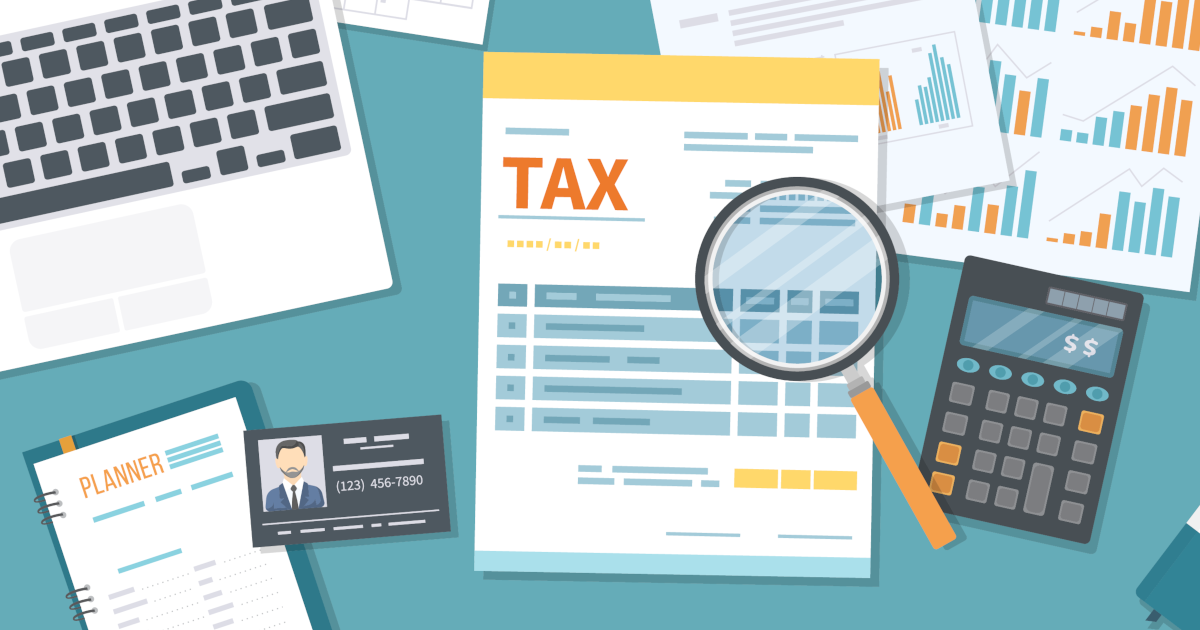
Having a plan for your small business's income taxes can feel daunting. Follow these tips to ensure you retain revenue & remain in good standing.
No matter the size of your business, properly addressing your company’s numerous tax requirements is critical to the lasting success of your organization. Failure to do so can result in substantial penalties, fees, and in some extreme cases, even a forced dissolution of your company.
Read ahead for expert information on approaching your business’s income tax and employment tax burden. If you do this, you’ll ensure you can keep your organization in good standing. That way, you’ll be able to take home as much of your revenue as possible.
Planning
Before creating an entity for your new company, you must take some time to understand the tax situation your business will likely face. This is important when determining a company’s potential profitability, which can make or break a business idea.
Tax planning is also essential so you can plan ways to reduce your tax burden as much as possible. While taking every credit and deduction you’re eligible for is encouraged, evading taxes through deceptive practices is not and will typically be harshly punished.
Another step in the pre-formation tax planning phase is determining which formal business structure your new company will adopt. Each structure has its tax implications, which have unique benefits and limitations. Correctly identifying which will best serve your specific business’s operations and needs can positively impact your after-tax earnings.
Deductions
One of the most common ways to reduce your overall tax burden is to understand what you can deduct as a business expense. To write something off, you will need to prove the expense served an ordinary and necessary business purpose. It helps to have a clear and defined purpose when identifying a legitimate expense so you can run your business effectively.
Accounting Practices
Due to the sheer number of laws and regulations, small business accounting can get complicated. You will have to make essential accounting choices affecting your bottom line. Primarily, you must select the start of your tax year and which accounting method your business will utilize.
Sole proprietorships, partnerships, and S corps generally have to use a calendar year for their selected tax year. However, you can use a fiscal year if you provide a valid business purpose. This election can benefit businesses with highly seasonal revenues because it avoids spreading any revenue over two tax years.
For example, suppose a business's busy season starts in November and ends in January. In that case, a fiscal tax year will prevent expenses and revenues from being split between two different tax years.
When choosing an accounting method, most small business owners lean toward the cash method as it’s simpler to track for tax purposes. With this method, you report income when you receive it and deduct any expenses when they’re paid.
The cash method also allows business owners more flexibility, as they can pay off all their expenses at the end of the tax year instead of when the payment is due. Depending on the nature of your business, this system might make sense for you.
Net Income
Quite logically, the most crucial factor in determining your income tax burden is your business’s reported net income.
There are three basic rules you should follow:
1. Properly Account for Miscellaneous Revenues
While your sales will likely comprise most of your income, you must also address any miscellaneous revenues. Failing to do so can raise red flags with the IRS and may open your business up to an audit.
2. Keep a Close Eye on Variable Costs
A common mistake small business owners make when calculating their net income is failing to address all of their variable expenses, especially their cost of goods sold. Pay close attention to this figure to ensure you aren’t missing any legitimate expenses that can help lead to tax savings.
3. Learn About Deductions
Even if you employ an accountant, it is well worth the effort for any business owner to learn the legalities and logistical realities of how deductions can help a business’s bottom line. By understanding what can and cannot be claimed as a business expense, you can quickly identify what purchases can help you reduce your business’s taxable income.
Depreciation
Most businesses require substantial equipment, property, and other significant assets to maintain their operations. These large purchases aren’t typically written off like minor expenses because they can depreciate over time and affect your tax liability.
The most important aspect of accounting for capital assets is determining and reporting the value of depreciation. Accounting for the annual loss of value that these assets accrue over time can lead to significant tax savings in the short- or long-term, depending on your company’s strategy.
The most common approaches to calculating depreciation are
Straight-line
Double declining balance
Bonus
Second 179
Straight-line
Straight-line depreciation is the simplest method, as your assets depreciate by the same set amount each year until they reach zero. This method typically results in higher book value in the long term but higher taxes in the short term.
Double Declining
New businesses looking to save cash in the short term might choose the double declining balance method. Assets that quickly lose value in their early years, such as a car or machine, are depreciated at twice the rate, allowing for faster depreciation accrual.
Bonus
Bonus depreciation allows a company to reduce its tax liability by paying 100% of an asset’s depreciation in the first year. This method reduces the short-term taxable income by the asset value, which can result in fewer taxes for the tax year.
Section 179
Section 179 is a tax benefit for businesses with startup equipment, such as vehicles, machinery, and computers. With the section 179 method, you can immediately deduct the total cost of the qualifying equipment from your tax burden rather than relying on small deductions from year-over-year depreciation.
Self-Employment Taxes
Depending on your business structure, you might owe self-employment taxes. These taxes are imposed on certain types of business owners and are similar to employment taxes paid by recipients of W-2s.
If you’ve ever received a paycheck from an employer, deductions supporting these funds were withheld from your wages. Depending on your business structure, there are specific rules you must follow to pay these taxes. Be sure to understand what the IRS will require of you to fulfill this tax payment.
S corporations pay a lower self-employment tax than LLCs and other business structures because all shareholders are considered employees. The self-employment tax appears as a payroll tax on employee wages. Still, since it’s taxed on a reasonable salary rather than the entire amount, it typically results in significant tax savings.
Operating Losses
If your business posts an operating loss for a tax year, you will still need to file all of the annually required tax forms for your business. However, this is in your best interest, as doing so can lead to savings on your personal tax return. This is because a business loss lowers your income, resulting in a lower self-employment tax and overall tax burden.
Tax Credits
While they aren’t available to all companies, numerous tax credit programs exist that allow for significant savings by businesses in certain industries or that meet specific criteria. These credits can be extremely valuable for qualifying companies because they reduce your tax liability dollar for dollar directly from your overall tax burden. As a result, you might want to speak with a professional regarding claiming any potential tax credits.
Getting Professional Tax Help
As you can see, you must consider many factors when filing and reporting your business’s income taxes. As with any tax or financial-related issue, it is always in your best interest to pay close attention to IRS-imposed requirements and due dates. Whenever in doubt, speak with a tax professional to avoid costly mistakes.

